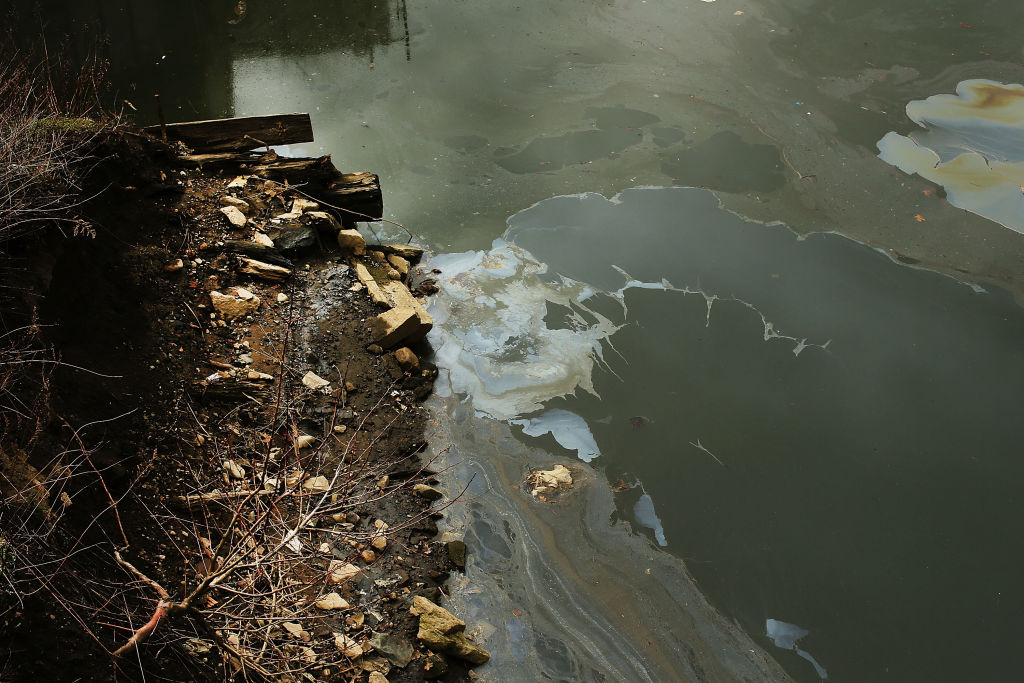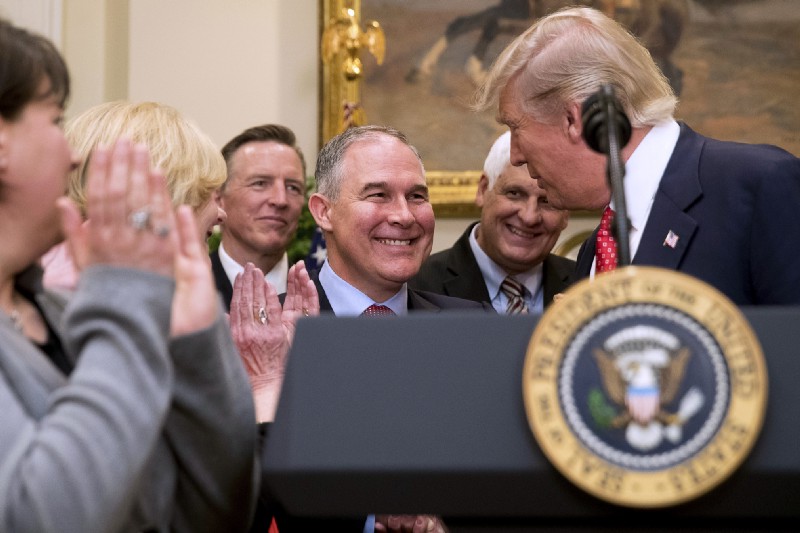The Environmental Protection Agency (EPA) has pulled eight Superfund sites from a list of 22 sites so far during acting Administrator Andrew Wheeler’s tenure that former Administrator Scott Pruitt had listed as top priorities.
Given Wheeler’s extensive lobbying connections to toxic polluters and the industry veterans brought on board, the number of conflicts of interest related to EPA’s oversight of the nation’s toxic waste cleanup program could surpass the controversies that cropped up during Pruitt’s tenure. That’s according to a new report from the Center for American Progress.
Dow Chemical was cited as responsible for creating three of the eight toxic waste sites that Wheeler removed from the list, according to the report authored by Sally Hardin, an energy and environment research analyst at the Center for American Progress. (ThinkProgress is an editorially independent news site housed within the Center for American Progress.) Wheeler downgraded the three sites at the same time as a former top Dow Chemical executive was preparing to lead the EPA’s Superfund office.
“Scott Pruitt and his headline-grabbing scandals may be gone from the EPA, but his culture of corruption that puts polluters before people lingers in the form of his handpicked deputies,” Hardin said Wednesday in a statement. “People like Andrew Wheeler and Peter Wright cannot be trusted to protect our air, water, and land from the very industries that they used to represent.”
The report, “Toxic EPA Appointees Spell Conflict for Public Health Safeguards,” also puts the spotlight on Wheeler himself. The acting EPA administrator has previously lobbied for chemical companies and was directly involved in decisions about a massive Superfund site in New York and New Jersey for which two of his former clients are responsible.
The Superfund program is part of the federal government’s effort to clean up land and water that has been contaminated by hazardous waste and has been identified by the EPA as a risk to human health and the environment.
In the Passaic River and Newark Bay near New York City, for instance, is a toxic dump that was polluted by more than 100 companies. The report notes this is an example of a potential conflict of interest; two of Wheeler’s former lobbying clients — meat-processing company Darling Ingredients Inc. and chemical maker Celanese Corp. — are listed as responsible for the toxic pollution. But the two companies are disputing their responsibilities for the nearly $1.4 billion cleanup effort, E&E News reported Monday.
Wheeler could cut the overall cost of the cleanup of the site, known as the Diamond Alkali site. This could benefit all of the companies from a financial perspective, including Wheeler’s former clients, but weaken protections for the millions of people who live around the site, according to E&E News.
The EPA had not responded to request for comment from ThinkProgress at the time this article was published.
The CAP report examines two former chemical industry lawyers who have been selected to be the No. 1 and 2 officials — Peter Wright and Steven Cook — overseeing the Superfund program.
“Wheeler’s appointments make a mockery of ethics and conflict-of-interest rules and come with clear effects on public health and the environment,” the report says.
The Senate is expected to vote this fall on the nomination of Wright to lead the EPA’s Office of Land and Emergency Management. The office oversees the agency’s solid waste and emergency response programs, including all of the country’s more than 1,620 Superfund sites.
Wright served as a corporate lawyer for Dow Chemical for 19 years, as managing counsel for environmental health and safety and as direct adviser to Dow on its Superfund cleanups. Even though Wright has yet to be confirmed by the Senate, Wheeler allowed him to begin work at the EPA.
Due to Wright’s ties to Dow, which is responsible or partially responsible for 171 Superfund sites on the Superfund National Priority List, Wright was required to recuse himself from working on more than 14 percent of the nation’s most toxic sites.
Cook, former senior corporate counsel for global chemicals giant LyondellBasell Industries, will be Wright’s top lieutenant. In February, the EPA named Cook as deputy assistant administrator in the agency’s Office of Land and Emergency Management, the office in charge of the agency’s emergency response and waste programs.
As part of his Superfund program duties, Cook is responsible for overseeing the cleanup of sites polluted by his former employer.
Lyondell Chemical Co. — a subsidiary of LyondellBasell — is responsible for at least six Superfund sites throughout the country. In 2010, the company agreed to pay $250 million as part of a settlement with the United States government — as well as several state governments — to help remediate 15 polluted sites across the country, including six Superfund sites.
While Wright has agreed to recuse himself from any work on sites relating to his former employer, the process for recusal requires that Cook screen sites and issues before they reach Wright, according to the report.
“In effect, Wheeler has stacked the deck so that the onus for responsible oversight of toxic cleanup by corporations passes from one former chemical industry lawyer to another,” the report says. “With this toxic hierarchy, it is easy to see how the public’s best interest — to live in communities free of hazardous waste sites — could be sidelined in favor of the industries that created those sites.”
As soon as getting sworn in as EPA administrator in February 2017, Pruitt cited the Superfund program as a core mission of the agency. Two months into his tenure as administrator, Pruitt visited a Superfund site in East Chicago, Indiana.
But Pruitt’s handling of the Superfund program during his 16 months as EPA administrator proved extremely controversial.
Pruitt selected an old friend to oversee the nation’s toxic waste cleanup program. The friend, former banker Albert Kelly, had no experience in environmental regulation, although he had invested in fossil fuel companies responsible for toxic waste that led to the designation of official Superfund sites.
Pruitt established a Superfund Task Force and chose Kelly to lead it. Later in 2017, Kelly was banned from the banking industry for life. His career at the EPA was similarly unsuccessful. Earlier this year, Kelly was forced to resign from the agency after numerous ethical questions emerged, including his financial relationship with Pruitt and complete lack of experience in environmental regulation.
Under Wheeler’s leadership, the opportunities for top EPA officials to help out former clients and employers appear even greater.
As the report notes, “That two chemical industry lawyers could be in charge of the nation’s toxic cleanup program — which was created to hold companies responsible for their role in polluting communities — shows just how far the EPA has strayed from its role as a public health protector, particularly under Wheeler.”



